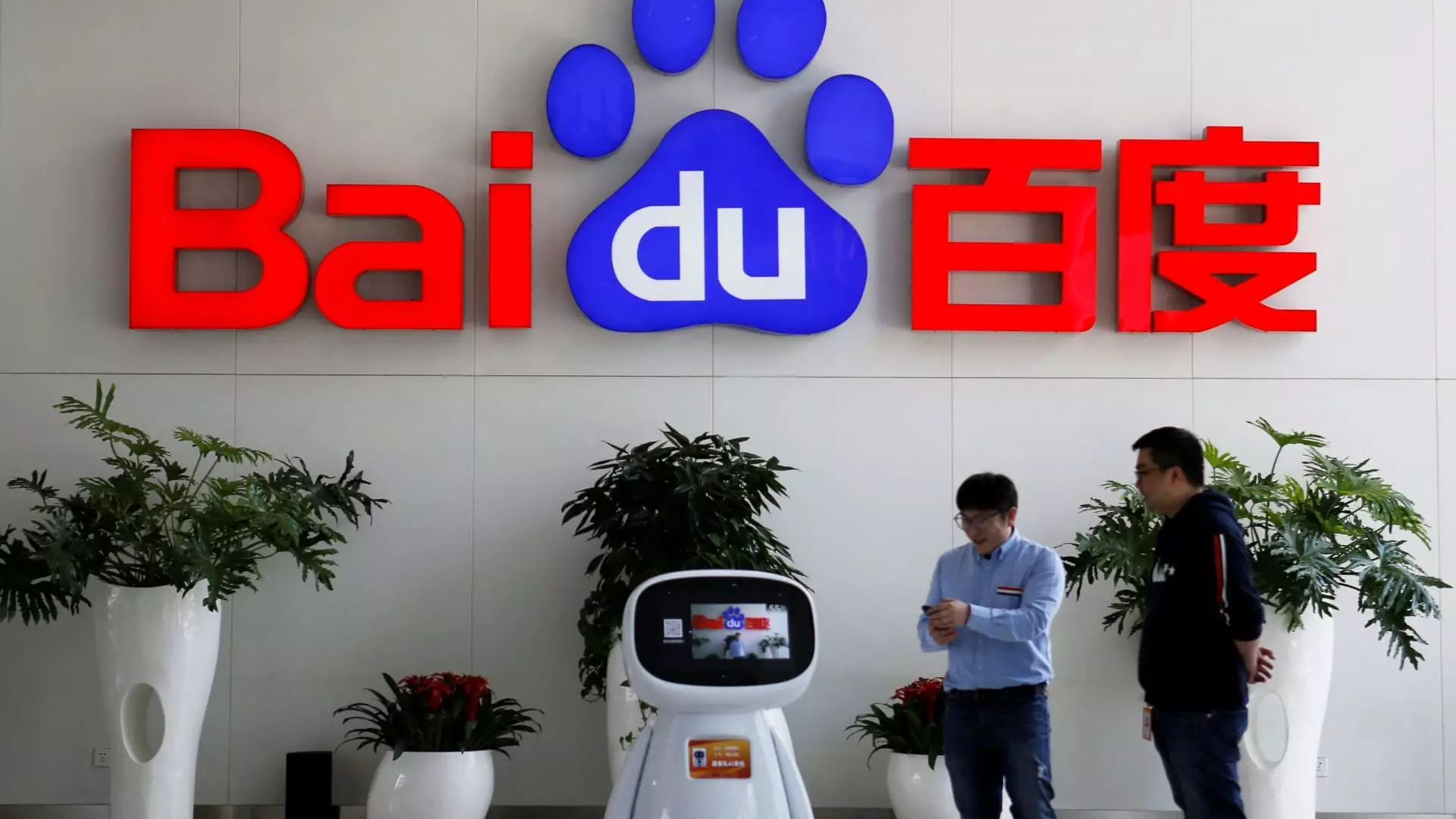As the global race for advanced artificial intelligence continues to escalate, Baidu stands at a crucial juncture, preparing for the launch of its next-generation AI model, Ernie 5.0. This strategic maneuver highlights not only Baidu’s ambition but also the dynamic and competitive landscape of the AI sector, particularly as newer firms like DeepSeek begin to disrupt the market. With promises of substantial advancements in multimodal capabilities, Ernie 5.0 could reshape the context in which AI operates across various domains.
In today’s technologically powered world, the demand for AI systems that can seamlessly process multiple forms of data—text, video, images, and audio—has never been more pronounced. This is what is referred to as “multimodal” AI. The potential for such technology to revolutionize industries is significant; imagine an AI capable of taking a text prompt and converting it into a dynamic video or generating a textual report from audio inputs. Baidu’s Ernie 5.0 aims to be at the forefront of this evolution. While specific functionalities remain under wraps, the expectations surrounding its release speak to a broader trend in AI where versatility and intuitiveness are paramount.
The tech industry is characterized by fierce competition, and Baidu is no exception. In the wake of disruptive innovations, particularly from emerging companies like DeepSeek, traditional giants need to up their game to maintain relevance. DeepSeek’s recent introduction of an open-source AI model, which has been touted for its cost efficiency and reasoning capabilities, sent ripples across the tech market, influencing stock prices globally. Baidu recognizes the stakes involved, emphasizing the urgency to innovate in a sector that is evolving at breakneck speed. As Baidu’s CEO Robin Li stated, the cost of inference for foundation models could drop drastically—by as much as 90%—over the next year. This would not only enhance productivity but also redefine the economic models underpinning AI usage.
Although Baidu was a pioneer among Chinese companies with its launch of the Ernie chatbot, it now finds itself overshadowed by rivals. The rise of AI chatbots from startups and tech behemoths like Alibaba and ByteDance has presented a formidable challenge to Baidu’s market position. While Baidu’s stock has seen modest growth of 6% this year, competitors like Alibaba have enjoyed a striking 33% increase, indicating a fierce competitive pressure. Additionally, the expansive integration of generative AI into Baidu’s range of products—from cloud storage solutions to content creation systems—places it in a beneficial position. Recent data reveals that its Wenku platform, known for producing presentations and other documents, boasts 40 million paying users, a promising statistic for prospective growth.
Baidu’s roadmap for AI innovation appears promising, especially with the anticipated release of Ernie 5.0. However, the company must navigate the treacherous waters of an ever-shifting market landscape. It should not only strive to enhance its technical offerings but also develop strategies to reinvigorate its competitive edge against fast-rising startups. The company has already seen some success with the Ernie model which has integrated generative AI into various applications, including a turbo-charged version, Ernie 4.0, launched earlier this year.
Additionally, it is crucial for Baidu to maintain transparency with its user base and stakeholders regarding future updates and releases. As seen with OpenAI’s progression—having recently rolled out GPT-4o—companies must share their vision and timelines effectively to foster trust and anticipation among users. The absence of a clear timeline for future releases, as noted by OpenAI’s CEO Sam Altman, may lead to apprehension in the market.
As Baidu prepares for the introduction of Ernie 5.0, it stands at a pivotal crossroads filled with both opportunities and challenges. The quest to establish leadership in the AI domain will hinge not only on technological advancements but also on the company’s ability to remain agile and responsive to an increasingly competitive market. All eyes will be on Baidu as it endeavors to reclaim its position and redefine the boundaries of artificial intelligence in the burgeoning multimodal landscape. The future of AI is bright and filled with potential, but it remains to be seen how effectively Baidu can capitalize on this excitement.


Leave a Reply